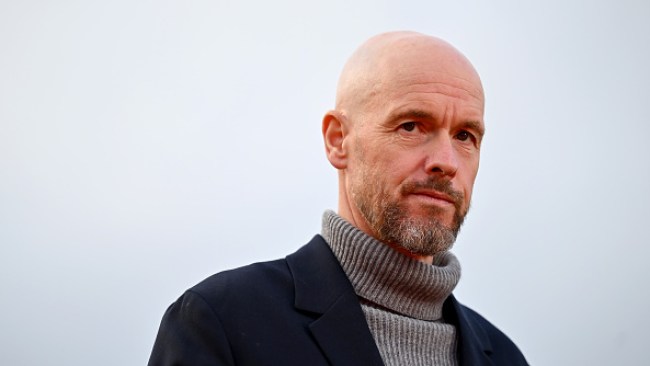
Erik ten Hag has made a peculiar assertion, suggesting that Manchester United’s struggles are attributable to Financial Fair Play regulations, despite the club’s expenditure of nearly £200 million this season.
Following a promising debut season at Old Trafford, many anticipated an upward trajectory for United in the 2023/24 campaign.
However, the reality has not mirrored those expectations. Currently positioned sixth in the table, the Red Devils find themselves eight points adrift of the top four.
Nevertheless, they have an opportunity to narrow the margin against Aston Villa and Tottenham by securing a victory over Luton Town on Sunday. Furthermore, United’s hopes for silverware rest solely on the FA Cup, following their eliminations from the Carabao Cup and the Champions League, with the latter exit occurring in a humiliating fashion during the group stage.
While criticism has been directed at the players, manager, and ownership alike, Ten Hag’s attribution of blame to FFP appears perplexing, particularly considering a recent UEFA study indicating that United boasted the most expensive squad in world football last season.
‘When we were in the summer, I think we had very good momentum. We had finished third, we won one final, and were in another final,’ the Dutchman said ahead of the Luton clash.
‘Then we chose to bring in young players for the future – and that had to do with FFP. ‘That was the choice we made – but you then know it will take longer before you can come into the competition for the top positions in the Premier League or Champions League.’
Ten Hag’s argument seems less convincing considering his significant expenditure last summer, totaling £188 million on seven new players, all with an average age of 26.
Moreover, the bulk of this expenditure was allocated to just three players: Rasmus Hojlund (£72 million), Mason Mount (£55 million), and Andre Onana (£43 million).
While Hojlund may be considered youthful and inexperienced, his transfer fee still places him among the club’s most expensive signings. Notably, United opted for his signature over that of a more seasoned striker like Harry Kane, who ultimately joined Bayern Munich for just £30 million more.
Nevertheless, Ten Hag expresses confidence in United’s academy, suggesting that it can continue to cultivate exceptional talents, potentially mitigating the necessity for significant future expenditures.
He cites the impressive performances of Alejandro Garnacho and Kobbie Mainoo as evidence of the academy’s potential.
‘Man United will always be a buying club – but I think history proves it always gives opportunities from the academy through to the first team if a player deserves it,’ the manager added.
‘It’s in the DNA. In my opinion, there were players who had the potential. We have given them the time to develop and progress.
‘We have been mentoring them in their way through because we saw their potential was higher than the current squad in that moment and in those positions. You see when you give them the opportunity, they progress so quickly and bring the team to higher levels in the long-term.’

Leave a Reply